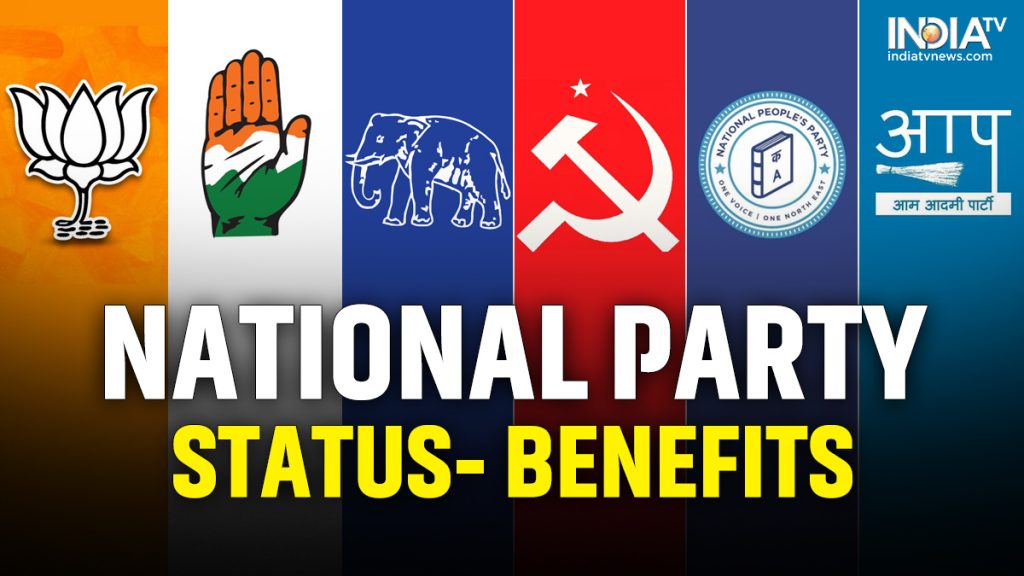Politics is for the uneducated. Politics is a dirty game. It is impossible to survive in politics without corruption.
These and other truism defined Indian politics for a generation of Indians who grew up in the 1980s and 1990s. That the idea of honest, patriotic, and educated Indians coming together to form a viable political force seemed remote, perhaps even a pipe dream. Just ten years back is a testament, to how low politics had stooped. Never mind it was honest, patriotic and educated Indians, who had led the independence movement, drafted our Constitution and laid the foundation of a modern, democratic nation.
That is why the emergence of the Aam Aadmi Party as a national party in just ten years is nothing short of a miracle. Born of the India against corruption movement in 2012, there were few political observers who believed the AAP would survive beyond the first few years.
Indeed obituaries of AAP have been written, and continue to be written, every single year since its formation. Some mistakes were made, but AAP learned from them and grew stronger. Eventually, though, it was sheer force of collective will of the people, who for long had yearned for a platform of honest, alternative politics, that saw the party overcome every obstacle and emerge as the most successful political start up in India’s politics.
Today, AAP is the youngest political party to traverse the journey of becoming a national political party in 10 years. It is also the youngest political party to form a majority government in two states—Delhi and Punjab—within its first 10 years, and gained substantial vote share, and won assembly seats in Gujarat and Goa.
In the process, many political predictions were demolished. The success of AAP has proved that political parties can fight and win elections without indulging in corruption and they can govern successfully without looting the state treasury. It is no mean feat that Delhi government’s budget has increased by an unprecedented two-and- half times in last eight years, and the excise revenue of Punjab government have increased 40% in just the last year.
Further,, the success of APP has shown that the change is possible. Not a single political party can claimed to have done revolutionary work in multiple field of governance—be it transforming the government of Delhi or building a model health school infrastructure system comprising of world-class mohalla clinics, polyclinics and government super specialty hospitals, providing free and 24×7 electricity to residents, free and piped water supply to all households, free bus rides for women or reducing the wretched air pollution of Delhi by 30%. What also sets AAP apart is that it managed to do this in just eight years, while consistently running a revenue surplus budget.
AAP has also upset the most deeply entrenched status quo of Indian politics that uses communalism as the trump card to win elections. The “us vs them” narratives has been used by parties from North to South, and west to east to win elections. In Haryana, it is jat vs non-jats, in Maharashtra it is Maratha vs non-Maratha, in Gujarat it is Patidar vs non-Patidars and at national level, it is Hindu—Muslim narrative. Traditional parties have—and will continue –to divide people along caste or religious lines for political gain. But AAP has shown that the future of 21st century India is not condemned to this “us vs them” narrative. The people of Delhi and Punjab, as well as, the Lakhs of people who voted for AAP in Goa and Gujarat, have shown that the politics of divide and rule does not impact their voting decision. The voter of AAP ask their representatives about the work they have done or intend to do, not about their caste and religion.
AAP’s emergence as a national party has changed the language of India’s governance and politics. Political parties going on election battlefield with a report card on their work done in an increasingly common site. AAP is still the only party, however, that ask people to vote for them only if they are satisfied with their work, and not vote if they aren’t.
The most lasting contribution of AAP, though, will be will be current and future generations of Indians will no longer grow up detesting politics as we did in the 1990s, but instead, see it for what it is—the most effective way to serve people and change the destiny of our great nation. (IPA Service)

 Centre Has Initiated The Process Of Relaxation In Labour Laws
Centre Has Initiated The Process Of Relaxation In Labour Laws 